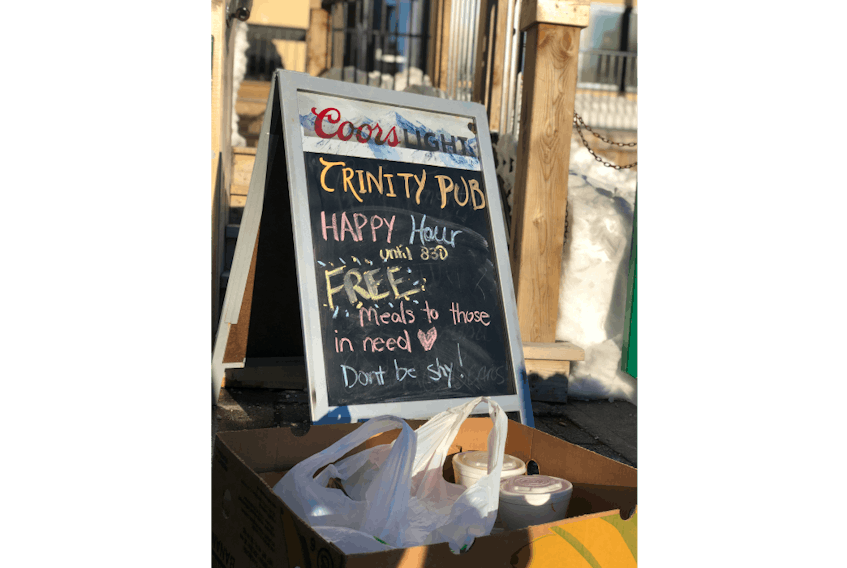We humans are social beings. The needed lockdown and social distancing have made us very aware that we receive joy from our interactions with each other. Both the quality and quantity of our relationships are the single most important determinant of our individual and collective mental and physical health. We have a deep need to connect with each other and with the place where we live.
Very few of us survive well as solitaries. Exclusion, shaming, shunning, emotional, physical, psychological, sexual abuse and neglect all hurt us. The pivotal Kaiser Permanente-CDC Adverse Childhood Experiences study shows that trauma, especially if experienced cumulatively very early in life, may have very long-term effects on our health and well-being. We now use the word trauma to refer to the many different causes of hurt and harm.
Newfoundlanders and Labradorians are known for their kindness, compassion and resilience. “Come From Away” the musical is an elevating ode to “Kindfulness.” Sadly, as is now being shared, systemic racism is also alive in our beautiful province and across “our smiling land.”
Some of my experiences as the mother of two wonderful sons whose colouring is different than mine are both cringe-worthy and amusing. As one example, I loved the atmosphere at the Green Belt Tennis Club. My younger son enjoyed taking lessons there for several years. This was a sad time for our little family, as my late husband was enduring brutal cancer side-effects. He had received life-giving treatments for a malignant brain tumour in 1987. We continued with our lives, hoping against hope.
Some of my experiences as the mother of two wonderful sons whose colouring is different than mine are both cringe-worthy and amusing.
Sadly, after 20 years our luck ran out and over the last seven years of my husband’s life, he suffered greatly. At this very sad time, I always enjoyed the friendliness and warmth of the staff and patrons at the tennis club. On one memorable occasion, I was accosted by one of son No. 2’s best buddies. This bright and friendly 10-year-old asked me in a loud voice “How come you’re white, and he’s Black?” This question brought the background chatter to a halt. Fortunately, this type of innocent questioning had happened to me often enough with son No. 1 that I knew the “correct answer.” I knew that if I said, “He looks like his father,” this would suffice, and it did. It is normal for children to wonder and ask questions, and there is no malice behind it.
In 2016, I experienced an agonizing negative life-altering process. During my very long ordeal, I often sought support from compassionate friends. One, a wonderful physician leader who practices medicine at McGill University in Montreal, ended all our phone chats with the question “Where is the compassion?”
Where indeed? Like many of my peers, when faced with a question for which I did not have a pat answer, I asked Google: “Do Compassion and Kindness actually exist? Can these key human attitudes and skills be taught?"
According to the Charter for Compassion, the answer to the first question is a resounding yes. The answer to the second question is debatable. Compassion and kindness have been celebrated in every human wisdom tradition since the beginning of time. Scientists have been also researching these questions.
In May 2017, I was diagnosed with early-stage aggressive breast cancer. Later that month, I applied to train to teach compassion cultivation training (CCT) from the Centre for Compassion and Altruism Research and Education at Stanford Medical School and the Compassion Institute. Since then, I have completed as much as my 60-plus body could tolerate of combination cancer therapy at our welcoming local cancer centre. I have also been reading voraciously, searching for helpful approaches to life’s wonder and challenge. This past February, I became certified to teach CCT.
In his excellent book “The Five Side Effects of Kindness,” Dr. David Hamilton explains how kindness is contagious, and how research shows that cultivating kindness may make us feel happier, improve our relationships, decrease our risk of cardiovascular illness and help us to live longer, healthier lives. Research is ongoing as to what are the most effective ways that we can each effectively cultivate compassion and kindness. To learn more, check out the website for the Compassion Institute at https://www.compassioninstitute.com/ and the Charter for Compassion. https://charterforcompassion.org/.
Dr. Frances Scully
St. John’s








